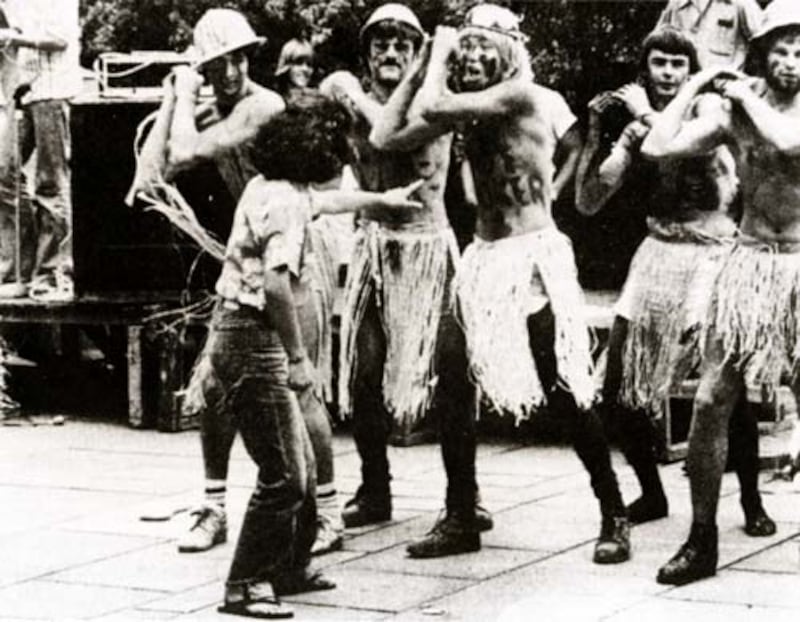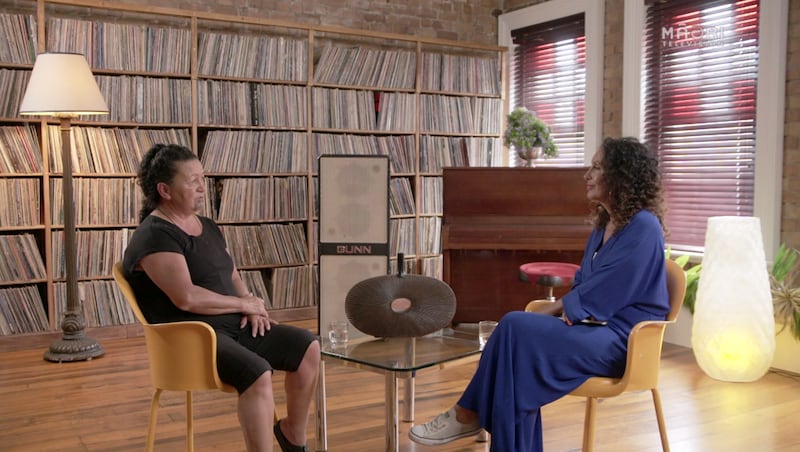Hilda Halkyard-Harawira has been involved in mobilising people power movements for many years, unafraid to call out racism and Treaty breaches whenever and wherever she sees them.
She’s a mother, grandmother and great grandmother, the wife of Hone Harawira, a lover of waka ama, educationalist, advocate for te reo, activist and leader in the tino rangatiratanga movement.
Halkyard-Harawira first came to the nation's attention in 1979 when she was part of the He Taua action group that confronted a bunch of drunken engineering students at Auckland University who were performing their annual insulting parody of the haka Ka Mate.
Halkyard-Harawira, of Ngāti Hauā, Te Rarawa, recalled the chain of events during an interview with Moana Maniapoto on Te Ao with Moana.
“Māori students went to visit them the day before to say ‘Please stop doing this,' you know, going 25 years and they just said, ‘No, it was too late’,” Halkyard-Harawira said.
The next day when the engineering students were about to perform, a couple of Māori students ran in and said, “’Take those effing skirts off’. So what happened in 25 years was stopped in two minutes.”

Hilda Halkyard confronts Auckland University engineering students performing a mock haka in 1978. Photo source: Craccum
After the confrontation some students were hospitalised and 11 people were arrested and faced 88 charges including unlawful assembly and rioting.
“It was a difficult time and we can look back and say, ‘Oh, you know, that was a great set of action’. But when you're living in it, there's a lot of people hurt… lost jobs, police brutality. I think there's only one or two who didn't get beaten up because the cops had worn themselves out beating up the first lot.”
The media at the time was also powerful, Halkyard-Harawira says.
“We got framed inside that and villainised as gangs, horrible people. And I say today, that racism is like kikuyu grass. It spreads its tentacles into the land and strangles the natives. So you are always having to fight and pull back that kikuyu.”

Hilda Halkyard-Harawira during an interview with Moana Maniapoto on Te Ao with Moana. Source: File
Halkyard-Harawira has led activism groups with strong, clearly articulated and focused kaupapa. One group she was a part of was Te Kawariki movement which, in 1990, organised a national Māori flag competition to provide a symbol of liberation and identity for Māori. The winning entry is now referred to as the tino rangatiratanga flag.
Hilda says she’s proud to see both Māori flags being celebrated but not at anti-vaccine protests.
“In the anti-vaccine, no, I don't like it … I just think rangatiratanga is about a collective gain. It's not about personal gain," she says.
“When you see all the stories of young people who are refugees running from warfare, you see Palestinian kids and their houses are bombed, people running away from oppressive regimes. And we are talking about the right to wear a mask, give me a break. That's not a bloody freedom. That’s a mosquito bite.”
'You've got to model what you believe'
Hilda was born in Mangonui, raised in Otara, and lives in Kaitaia. She has taken her passion for education and te reo back home to Muriwhenua where she is the key advocate for the collective of Kura Kaupapa Māori across the north.
“You can't protest all the time. Sometimes you've got to model what you believe,” she says.
Through her actions, Hilda has created awareness for the Treaty of Waitangi and has played a part in the development of consciousness-raising for Māori and successive governments. But she says more work needs to be done.
“The governments are still deaf. We've written millions and millions of submissions. We could fill up container loads. So my thing is we should go for the constitution of Aotearoa, for our mokopuna, that we embed He Whakaputanga me Te Tiriti in that, to save ourselves a lot of grief and it should be done within the next two elections, she says.
“Some people are saying, ‘Oh, let these Pakeha or the rest of the country get used to it, to do it by 2040’. But why should we give people another 19 years, 18 years? Why do they need 200 years to get over their crappy racism? If you can do action with Covid-19 – that’s a really bad virus – so is racism.”
Watch Te Ao with Moana every Monday at 8pm on Māori Television.


